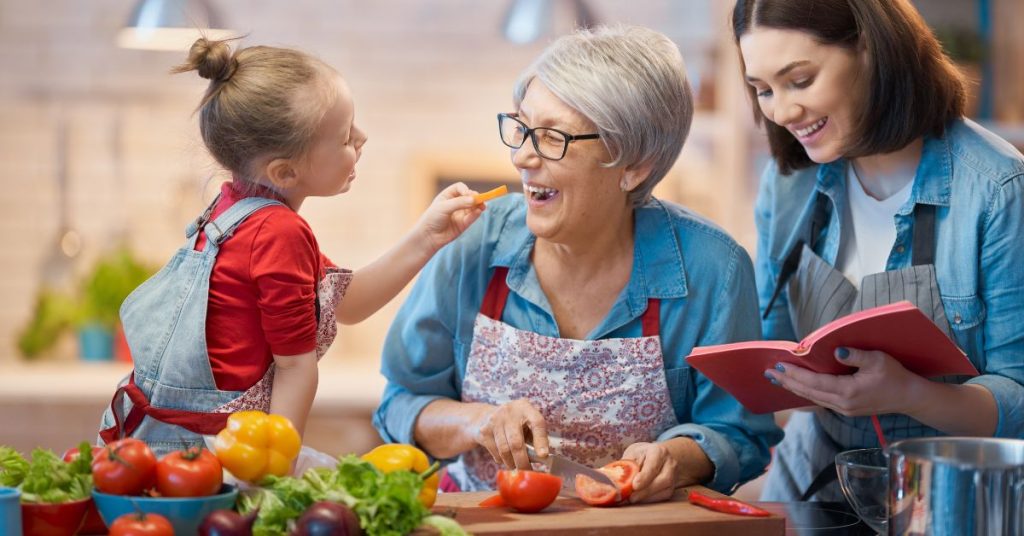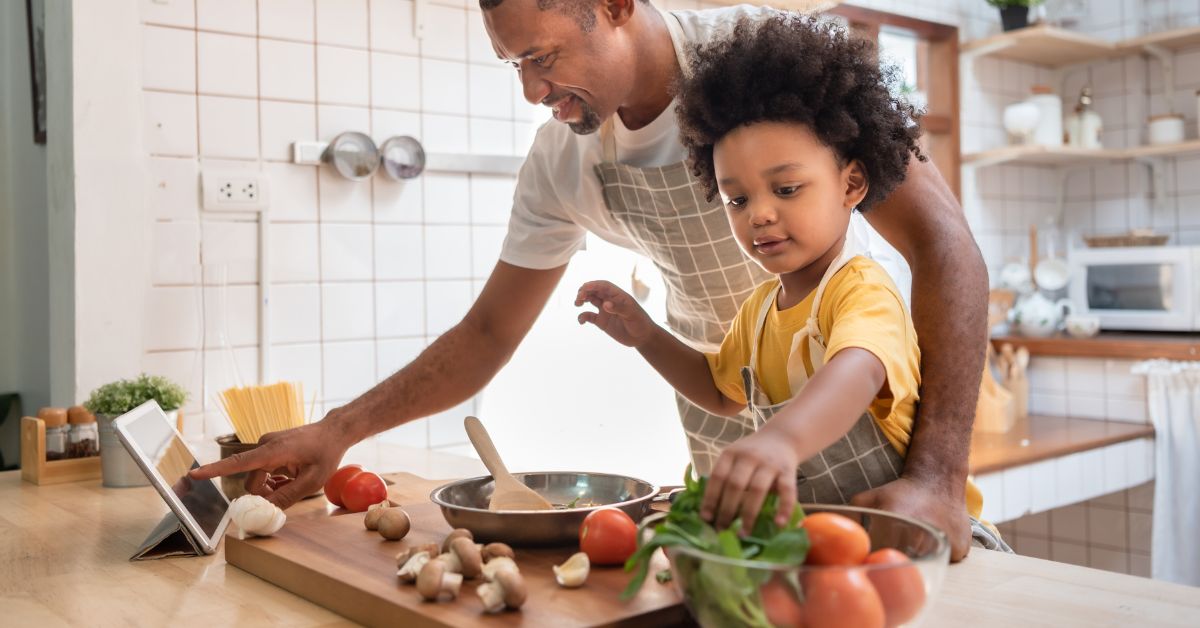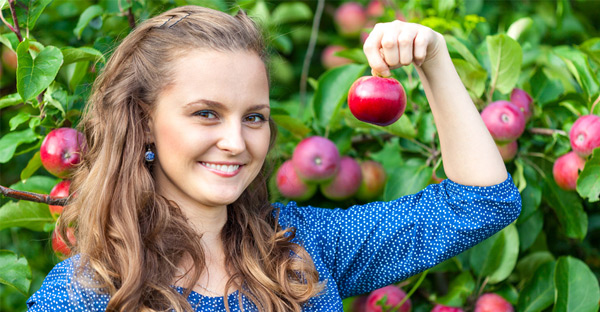

There are few things more valuable to impart to your child than how to cook and have a healthy relationship with food. And if you don’t teach them, who will? Cooking is not something most children learn at school, so your children’s abilities depend almost entirely on what they are exposed to at home and with relatives.
These lessons can pay dividends for life. A love of cooking instilled early on can translate into excitement to try new recipes and improvise in the kitchen as they mature into adulthood. These skills are also critical for their health: children who never learn how to prepare healthy meals are more likely to later rely on frozen prepared food and restaurant food.
On a more personal note, when you bring your children into the kitchen, you create memories they can cherish for decades. Do you remember a certain favorite dish associated with Mom, Dad, Grandma, Grandpa, or someone else? Many of us can probably still recall the flavors and delicious smells of such dishes. How might you help your child form those memories, too?
Prepare Yourself
Let’s face it—bringing children into the kitchen almost always means a mess, but you can minimize the frustration with adequate planning and preparation. You can even turn these messes into more learning opportunities. A messy kitchen is a great place to teach your child the importance of keeping tidy spaces.
Be patient while your children are learning, remember that kids of all ages need at least some supervision, and make sure you are available to guide them. For safety, you should give them tasks appropriate for their ability. Every child is different, but as a general rule, you should be mindful of their level of coordination when deciding whether cooking tools are appropriate. This is also a good time to emphasize the importance of clean hands and produce. (One benefit of the plant-based lifestyle is that you never have to worry about the possibility of cross-contamination from animal products!) Safety should always be a priority, so make the rules of your kitchen very clear.
Lastly, be encouraging and flexible and remember that every mistake is a learning experience.

Develop a Healthy Love for Food
Children love exploring textures. Allow them to explore different kinds of food when appropriate, such as while washing fruits and vegetables, rinsing grains, chopping cucumbers, peeling potatoes, or adding spinach to a smoothie.
Children are often more open to tasting new foods when cooking than at the dinner table. If you are slicing a cucumber, bell pepper, or zucchini, consider letting them try some. Your kitchen will quickly become a place of adventure, discovery, and great conversation.
Ideally, this positivity will translate to the dinner table. Coming together as a family at the dinner table is something to celebrate. It’s when the entire family can catch up on the day’s events, tell stories, laugh together, share dreams, and plan trips. Consider turning off all electronics to focus on the food and conversation. To encourage the positive ritual, consider letting your children set the table as nice or as fancy as they want.
Sprinkle in Valuable Nutrition Information
Every child eventually has to make and defend their own food choices; by sneaking in digestible pieces of nutrition information during cooking, you prepare them for that future.
Be prepared to answer their questions. You will have better luck conveying valuable information to your kids if they feel they are participating in a conversation and not merely receiving a lecture. Here is an example of the information you might share: when my children and I encounter oily food, I explain that this food will damage our endothelial cells. By now, all of my children know what this means. We have drawn diagrams and discussed the subject multiple times to reinforce the information.
Of course, the value of open communication also includes culinary lessons. For example, I have explained to my children that we add lemon to give a bit of a sour flavor to our hummus, dates to sweeten our smoothies, and cashews for creaminess in Alfredo-style sauces. With these tidbits, kids can eventually modify recipes or even create their own.
Empower Your Children
Maybe the foremost lesson children learn in the kitchen is that they have been granted a great responsibility and privilege. When cooking, they are helping to create a meal everyone can share. This responsibility can be very empowering, and it is something they can apply to the rest of their life.
Encourage your child to be your apprentice: they are learning important skills, not merely following orders. Eventually, they will follow recipes by themselves, and with proper support, they will likely feel proud of the accomplishment. Review the recipes you make frequently to determine which ones are appropriate for their skill level. You can also involve your children in this step. Children love to pick out recipes. When you allow them to do so, you reinforce that their opinions are valued. As a bonus, they are more likely to eat the meal if they had a hand in choosing it.
With time, your children will gradually become competent cooks, capable of substituting ingredients and even creating their own recipes. Most importantly, they will have a more positive relationship with food and family. You will make great memories in the kitchen!
Copyright 2026 Center for Nutrition Studies. All rights reserved.
Deepen Your Knowledge With Our
Plant-Based Nutrition
Certificate
Plant-Based Nutrition Certificate
- 23,000+ students
- 100% online, learn at your own pace
- No prerequisites
- Continuing education credits





